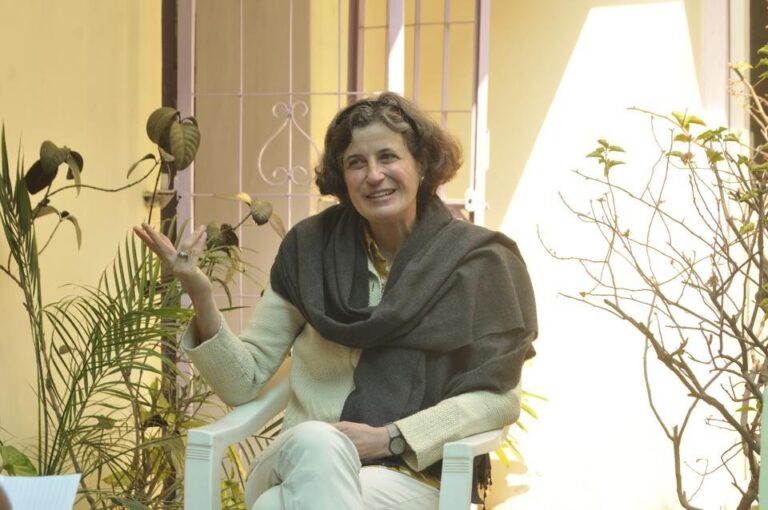The recent decision to bar renowned scholar Francesca Orsini from entering India has ignited a heated debate within academic and intellectual circles, prompting questions about the country’s commitment to the free exchange of ideas. Orsini, a distinguished professor of South Asian literary cultures, was scheduled to participate in scholarly events that celebrate India’s rich intellectual heritage. However, the denial of her visa has been widely criticized as an affront not only to the principles of academic freedom but also to the foundational ethos of knowledge and cultural dialogue that India has historically championed. This development raises urgent concerns about the implications of restricting intellectual engagement in a nation that prides itself on its pluralistic and inclusive tradition of scholarship.
Francesca Orsini Ban Undermines Academic Freedom and Intellectual Exchange
The decision to bar Francesca Orsini from entering India represents more than just a diplomatic misstep-it strikes at the core of academic freedom and the open exchange of ideas that form the foundation of scholarly pursuit. Orsini, a renowned scholar with extensive contributions to South Asian studies, exemplifies the very essence of cross-cultural intellectual collaboration. Curtailing her access to Indian academic circles not only stifles her research but also signals a troubling intolerance toward diverse perspectives that enrich India’s vibrant knowledge economy.
In a global academic landscape where diversity and dialogue are paramount, such exclusions inevitably lead to:
- Diminished opportunities for collaborative research between Indian and international scholars
- Limitation on the flow of ideas essential for cultural and historical understanding
- Undermined reputation of India as a hub for free academic discourse
| Impact Area | Consequences |
|---|---|
| Academic Collaboration | Severed ties and reduced joint research initiatives |
| Intellectual Diversity | Monocultural narratives overshadow critical scholarship |
| Global Standing | Perceived as restrictive, potentially discouraging scholars |
The Cultural Significance of Scholarly Dialogue in India’s Knowledge Ecosystem
At the heart of India’s centuries-old tradition lies an enduring respect for scholarly exchange-a dynamic dialogue that transcends mere academic interaction to become a cultural imperative. This ecosystem has historically thrived on debate, translation, and critical engagement, fostering an environment where diverse perspectives not only coexist but actively inform one another. By barring eminent scholars like Francesca Orsini, who symbolize this continuum of intellectual openness, India risks undermining its reputation as a hub of vibrant knowledge production, reducing its vast cultural heritage to a fragile, exclusionary narrative.
This resistance to global scholarship signals a worrying departure from the inclusive ethos that has defined India’s learning traditions. Scholarly dialogue is fuelled by:
- Cross-cultural collaboration that challenges parochialism
- Interdisciplinary insights that enrich understanding
- Historical continuity rooted in openness to external ideas
Suppressing this open exchange not only stifles academic freedom but also erodes the pluralistic foundation on which India’s intellectual advancements have been built for millennia.
| Aspect | Impact of Dialogue |
|---|---|
| Cultural Synthesis | Promotes hybrid knowledge forms |
| Academic Freedom | Encourages critical inquiry |
| Global Recognition | Attracts international scholarship |
Policy Recommendations to Protect and Promote Open Access for Global Scholars
To safeguard the ideals behind open knowledge exchange, governments and institutions must enact policies that ensure barrier-free access to global scholars and researchers. Visa restrictions and arbitrary bans like those faced by Francesca Orsini not only hinder academic collaboration but also undermine the foundational principles of intellectual freedom. Clear, transparent protocols that prioritize academic engagement over political biases are essential for fostering an environment where ideas can flourish without undue interference. Additionally, funding mechanisms should prioritize cross-border partnerships and support open digital platforms, enabling scholars from diverse backgrounds to collaborate unhindered.
Equally important is the establishment of international oversight bodies tasked with monitoring and advocating for scholars’ mobility rights and equitable access to knowledge. Such entities can facilitate dialogue between nations, universities, and academic publishers to promote open-access initiatives globally. The following table outlines core policy priorities that can protect and promote open access for global scholars:
| Policy Priority | Key Action | Impact |
|---|---|---|
| Streamlined Visa Processes | Fast-track academic visa applications | Enhanced scholar mobility |
| Open-Access Mandates | Require publicly funded research to be freely available | Wider dissemination of knowledge |
| International Collaboration Forums | Regular global academic summits | Strengthened cross-border partnerships |
| Anti-Censorship Protections | Legal safeguards for academic freedom | Preservation of open discourse |
Closing Remarks
The decision to bar Francesca Orsini from entering India raises profound questions about the country’s commitment to the free exchange of ideas and the safeguarding of academic inquiry. As a scholar whose work bridges cultures and histories, restricting her access not only undermines the principles of intellectual openness but also signals a troubling intolerance toward diverse perspectives in India’s vibrant knowledge ecosystem. In an era where dialogue and scholarship are vital to societal progress, such measures risk isolating India from the global community of thinkers and educators. Upholding the sanctity of knowledge must remain paramount, ensuring that voices like Orsini’s contribute to the ongoing conversations shaping the nation’s cultural and intellectual landscape.




